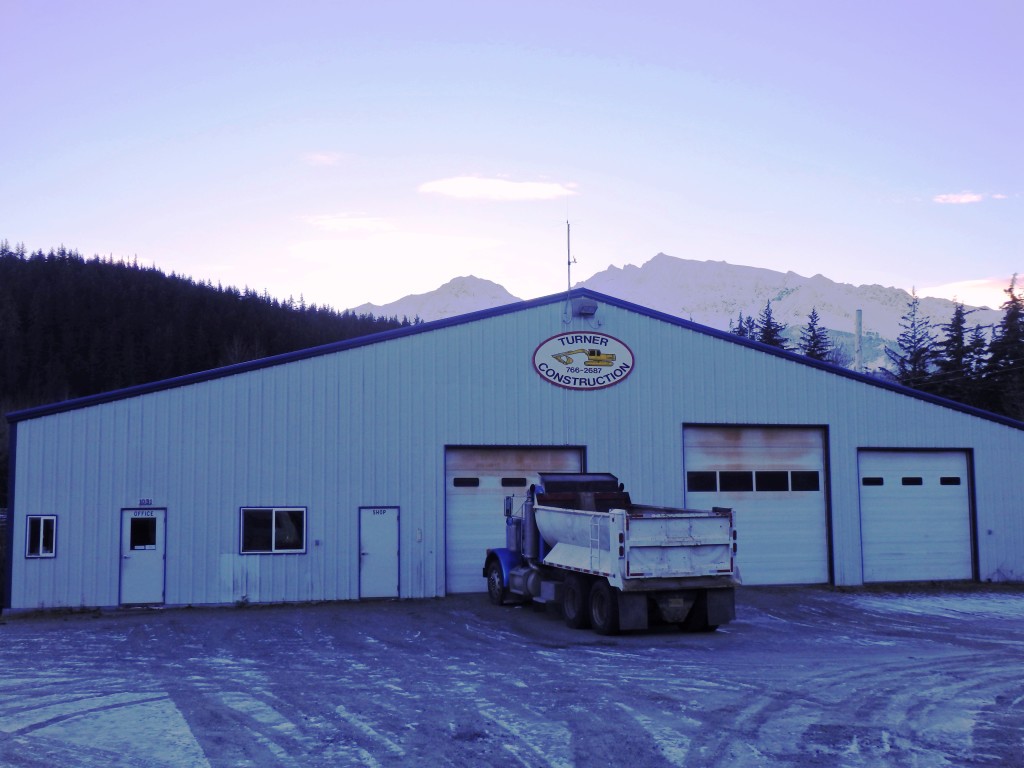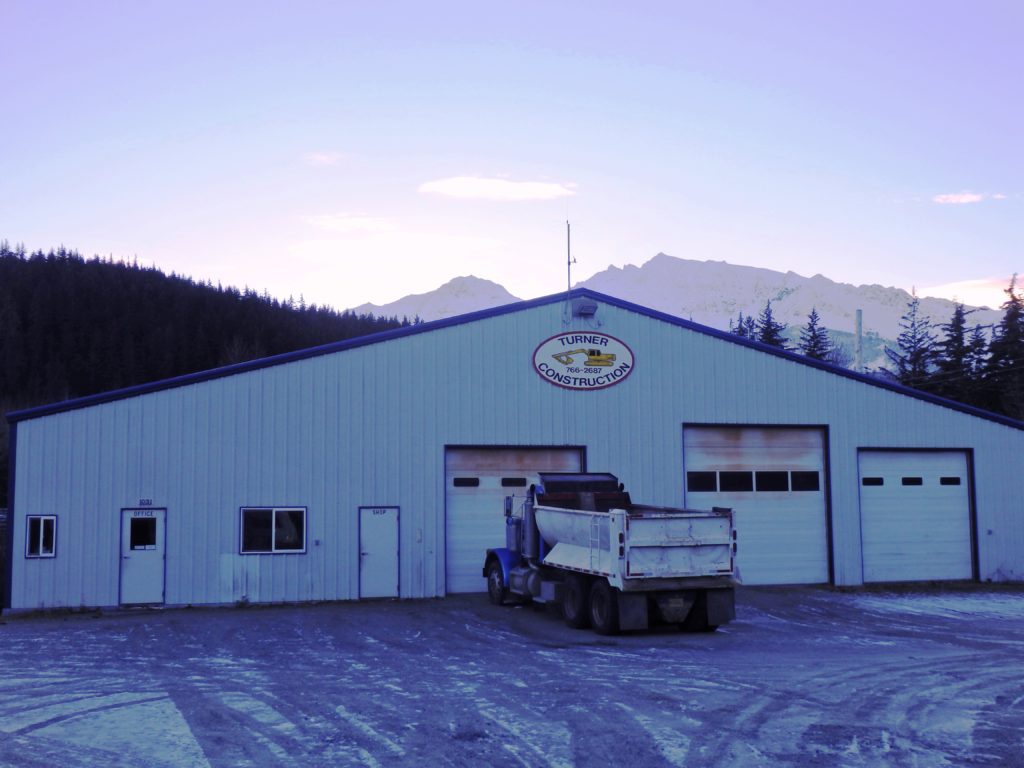
Turner Construction. (Emily Files)
After recent meetings focused on heliports, the Haines Borough Planning Commission considered a conditional use permit for another land use that has drawn opposition from neighboring residents – Turner Construction’s gravel pit on Allen Road.
One of the planning commissioners, Donnie Turner, temporarily left his seat at the table to sit in the audience as a representative of the construction company. In a 5-1 vote, the commission ultimately approved the gravel pit permit.
After more than an hour of debate, planning commission chair Rob Goldberg said this:
“This is the hardest thing that we have to do as planning commissioners.”
Goldberg said if it was up to him, he would not put a gravel pit in a residential area on Allen Road. But it’s been there for decades, before the current restrictions on commercial industrial use in the borough were implemented. “We inherited this,” Goldberg said.
Some neighboring residents have been fighting the gravel pit for years. Toni Dewitt is one of them.
“I have been attending these meetings for 17 years now, and it does not get any easier,” Dewitt said. “I am still passionate that this pit should’ve never been developed and permitted.”
Dewitt and others have noise and safety concerns. They complained about Turner Construction using jake breaks and operating at all hours. Joanie Wagner pointed to a statement from the Turners in 1998 saying the material at the pit could take 10 to 15 years to deplete.
“And that was 17 years ago,” Wagner said. “And now Donnie says he thinks he’s gonna pass the pit onto his son. So it’s been in operation 23 years now. And we were told 10 years, it’ll be done.”
Craig Hagwood is another resident in that area.
“Turner Construction has had years to make his income and money back from the investment on a property that’s not zoned for industrial use,” Hagwood said. “When is it fair and equitable to the residents who want to live in peace and quiet in a residential area to begin to enjoy the process of living in the borough of Haines?”
“You know, that’s what our livelihood is,” Donnie Turner responded. “Saying we’ve made enough money now we shouldn’t be able to make any more money, it would be like asking you, you’ve had your fishing permit you made your money now you should park your boat and you don’t need to make any more money. I live here, I work here, I think I deserve to make a living.”
Planning Commissioner Brenda Josephson also balked at the ‘they’ve made enough money’ argument. She referenced the Haines Borough Comprehensive Plan, in which sustaining local economy is a major priority.
“It concerns me when I hear this sentiment that you’ve made enough money, you should not be allowed to do activity on your land,” Josephson said. “That’s inconsistent with American land use rights. We need to protect all the interests of all the parties.”
But commissioner Heather Lende said their responsibility isn’t just to facilitate business, but to make choices that don’t harm residents.
“This is a pattern in our residential area, that we’re saying, ‘well, business is more important,'” Lende said. “But if it causes people not to live here, we’re in big trouble. And we have to be cognizant of that.”
Lende asked if Turner Construction could hire an expert to conduct a geotechnical survey of the pit, to help put residents’ safety concerns about a slide happening at rest. But Turner said his company’s work has made the site safer than before.
“I would not do anything to endanger anybody,” he said. “And so no, I don’t think there’s any safety concern at all. Period.”
Some of the commissioners pointed out that Turner’s gravel pit has received no formal complaints. That, in addition to the fact that gravel extraction is not a year-round, every day operation, were reasons some commissioners gave to support renewing the permit.
The Turners had renewed the permit six times before, and they asked this time around for a permanent permit, not just a three-year one.
“I don’t think granting a permanent permit is really an appropriate move in light of the neighborhood concerns,” Commissioner Robert Venebles said.
Venebles proposed a five-year permit. Other limits on the permit included hours of operation and jake brakes use only in case of emergency. In a vote of five to one, the commission approved the five-year conditional use permit. Lende cast the only vote against.
Commissioner Venebles encouraged Turner to focus extraction on the one-third of the gravel pit that falls in the residential area, which is the part that the company needs the conditional use permit for.
“They need to acknowledge the neighborhood concerns and try to wrap that up.”










Are there any slope stability reports? Any private or borough bonds to cover damage from landslide? I would be tragic if Allen Road went the way of the Kramer Avenue subdivision in Sitka. What remediation is required to assure the slope is left in a stable condition as earth is removed?